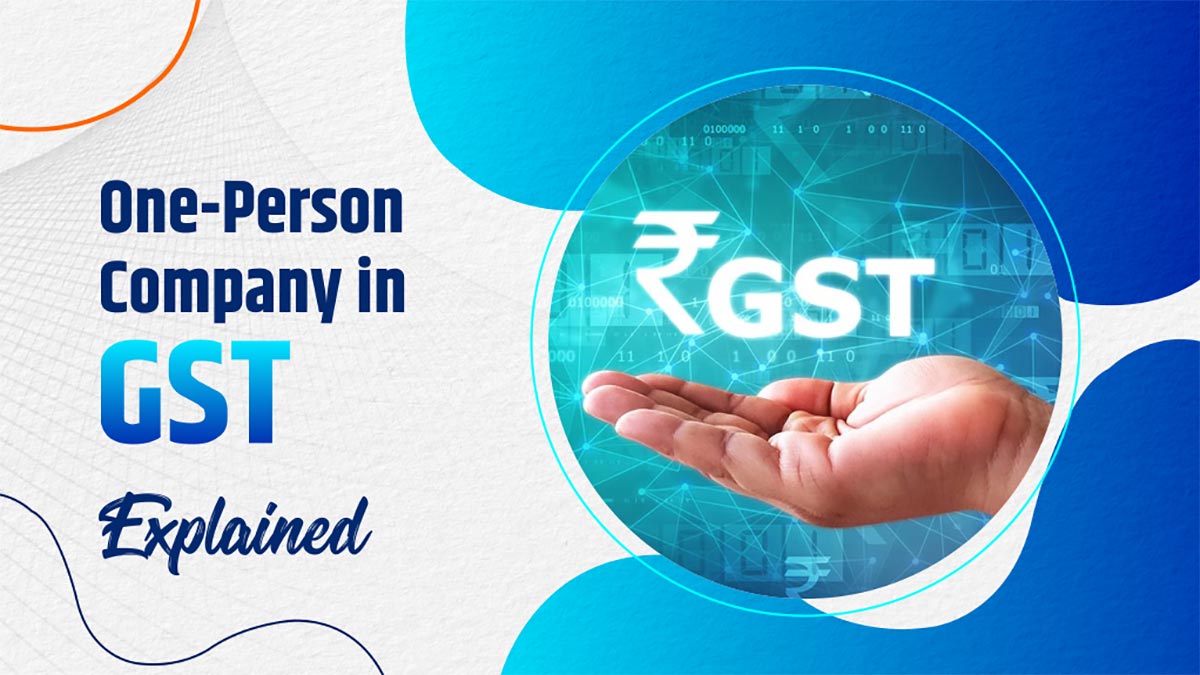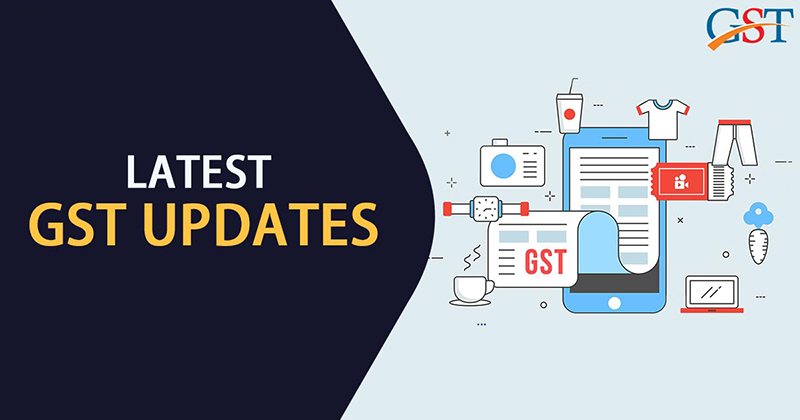
In India, the One-Person company (OPC) concept has gained much momentum recently. This corporate structure allows individuals to operate a business without needing a partner. In addition, the Government has simplified OPC registration under the Goods and Services Tax (GST) to streamline the process.
GST filing is a comprehensive tax levied on India’s supply of goods and services. It applies to individuals or companies engaged in such activities with an annual turnover of over Rs. 20 (twenty) lakhs. The registration process for a One-Person company is similar to that for other corporate structures, ensuring a consistent approach for all companies.
This blog will discuss all you need about the One-Person company (OPC) concept.
What is a One-Person Company?
With the introduction of the Companies Act of 2013, the approach to one-person companies (OPCs) has changed significantly. Before this Act, individuals could not form a company on their own. Instead, they could only opt for a sole proprietorship, as at least two directors and two shareholders were required to form a company. However, the Companies Act of 2013 introduced the concept of the one-person company (OPC), which allows a company to have a single owner. This new provision allowed individuals to establish their companies without additional directors or shareholders.
It is now possible to incorporate a company with only one director and one member under the Companies Act 2013 Section 2(62).
According to the Companies Act 2013 provision, it is possible to incorporate a company with only one member and one director. The idea of One Person Company (OPC) enables a single person to act as a director and the company’s sole member. This unique structure combines a corporation’s features with a sole proprietorship’s advantages, making it an attractive option for sole proprietors.

Who Can Become a Member of an OPC?
Certain requirements are set forth in the Companies Act for an individual to serve as a member and agent of a One-Person company (OPC). First, the individual must be a citizen of India. They must also be a resident of India. Under the Act, a person who has resided in India for at least six months during the preceding financial year is deemed to be resident in India for this purpose.
One Person or Company in GST?
When an individual becomes a member of a one-person corporation (OPC), it confers the status of an independent legal entity on the corporation. This legal status serves to protect the single person who established the OPC. One of the main advantages of an OPC is that the member’s liability is limited to the value of its shares. This means that the member is not personally liable for the losses or debts of the company beyond his investment in the company. In the event of lawsuits or legal proceedings by creditors, the OPC is sued as a separate legal entity and not the member or the director personally.

How to Register a One-Person Company for GST in India
A one-person company (OPC) operating in India must be registered for GST if its annual turnover exceeds the specified threshold. The registration process for an OPC under the GST system is similar to the regular GST registration process for other businesses.
- Visit the official GST portal: Go to https://www.gst.gov.in/.
- Tap on the ‘Services’ tab: From the drop-down menu, select ‘Registration.’
- Pick ‘New Registration’: Click ‘New Registration’ to initiate the registration process.
- Complete the details: On the ‘New Registration’ page, select ‘Taxpayer’ as the type of taxpayer and select the ‘State’ and ‘County’ where your business is located. Next, enter your official name and permanent account number (PAN).
- Enter contact details: Provide your email address and mobile number.
- Verify OTP: Enter the OTP received on your mobile number and click the ‘Proceed’ button.
- Generate Temporary Reference Number (TRN): After OTP verification, you will be redirected to the ‘Temporary Reference Number (TRN)’ page. Click the ‘Continue’ button to generate your TRN.
- Complete the registration form: Log in to the GST portal using your TRN and the captcha code provided. Complete the registration form by providing all the required details, including company details, bank account details, and authorized signatory details.
- Upload documents: Upload the required documents, such as PAN, proof of identity, proof of address, and business registration documents, in the prescribed format.
- Apply: Review your entered information and click the Submit button to submit your GST application.
- Expect verification: A GST official will review the information and documents submitted after submission. The official may request further clarification or additional documentation if there are discrepancies or missing documents.
Is it Compulsory to Register for a One-Person Company in GST?
For One-Person Companies (OPCs) selling goods or services, GST registration is mandatory if their annual turnover exceeds Rs. 20 lakhs for services or Rs. 40 lakhs for goods.
GST registration for OPCs is required irrespective of their annual turnover if they conduct business by supplying goods or rendering services across their state’s borders. For example, GST registration is required if an OPC registered in Gujarat sells goods to customers in Madhya Pradesh.

Current Changes Related to One-Person Company
Several individuals who registered as “one-person businesses” during the GST registration process raised concerns. After thorough research, it was found that the option to select a one-person company is not available on the GSTN portal.
To address this issue, it is suggested that taxpayers who wish to register for GST as a “single person business” select the “Other” option under the “Business Details” tab. The second section of the GST Registration Form, “REG-01,” refers to Part B. Therefore, in the text box, the applicant should indicate “one-person company” and follow the standard registration procedures to complete the process. This workaround allows OPCs to be included in the registration process despite lacking a corresponding option.
Conclusion
As a trusted GST Advisory and consultant firm, we understand the significance of reconciling your purchase invoices with supplier-uploaded invoices on the GST system. It directly impacts your ITC claim and avoids legal notices from the Government regarding discrepancies. Our solution streamlines and simplifies this crucial task, ensuring timely and efficient financial accounting for your business.
